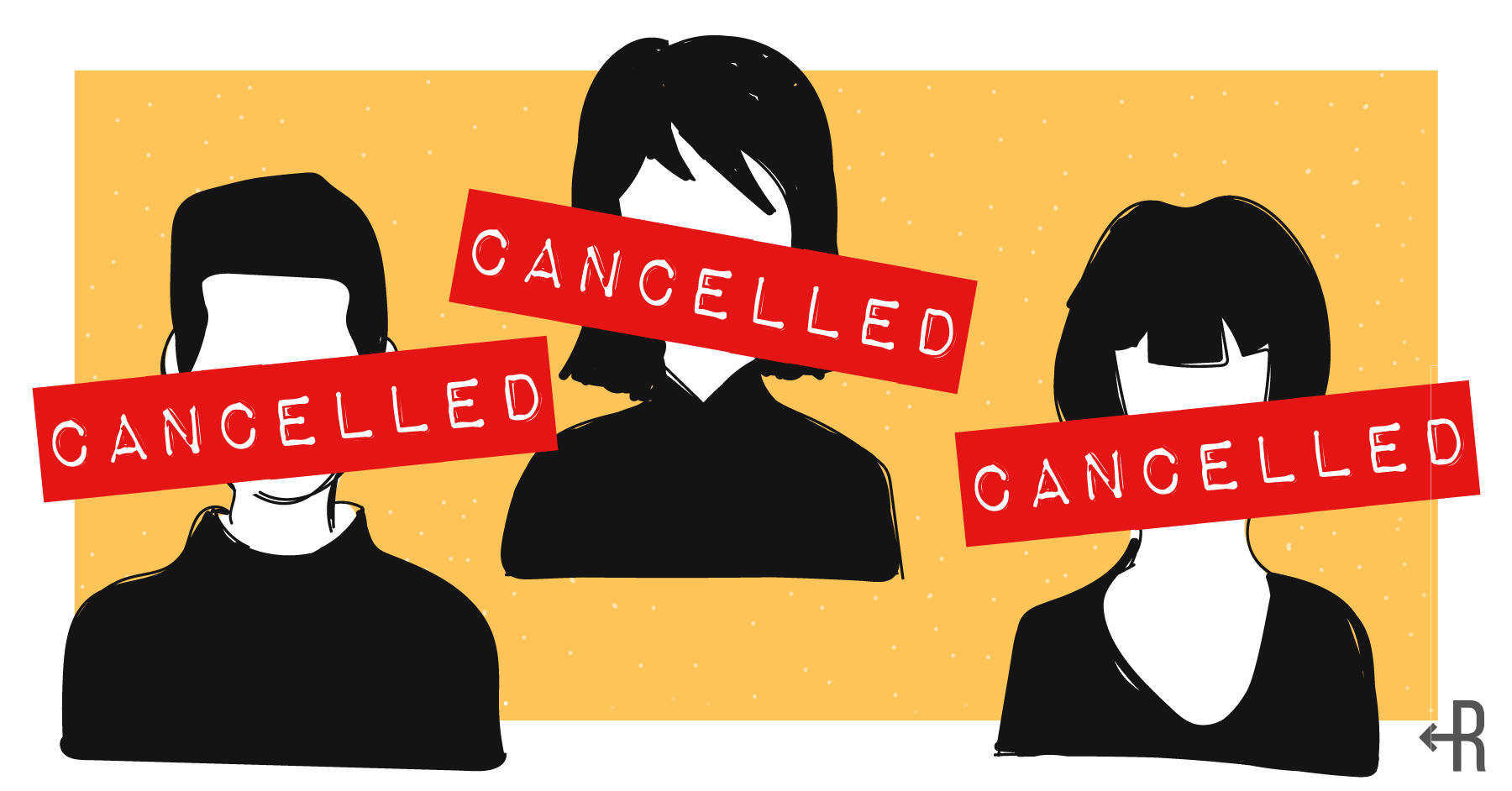The internet, in many cases, has the power to eliminate distance by a click, a power which has everything to do with how we communicate today. The phenomenon of people getting more connected was intensified when Facebook came into the picture in 2004.
Such powerful means have extreme consequences. Now, when a person, famous or not, says or does something controversial, the backlash on social media is almost immediate. Location and time zones are irrelevant, and information spreads quicker than ever. Getting ‘canceled’ is a public punishment for those acts, which has recently led to the term ‘cancel culture.’
It was not until 2019 that the term ‘cancel culture’ gained strength and became more popular. Google Trends data indicates there was almost no search interest in the phrase ‘cancel culture’ until the second half of 2018 and early 2019.
The term ‘cancel culture’ has gained a politicized connotation when users related it directly with social causes, such as the Black Lives Matter and Me-Too Movements. Later in 2020, amid the beginning of the Covid-19 pandemic, the term increased in use.
Cancel culture is an effective way of demanding social change. It draws a line of what is socially acceptable, especially on the internet – a nobody’s land, with no governor.
The 2016 edition of the Oscars is an example of this social demand. On this occasion, important filmmakers boycotted the Oscars in response to the lack of diversity between the nominees. The results were seen in the 2019 Oscars edition, where there was a record for the most wins between Black candidates.
However, cancel culture can be considered a modernized type of bullying since it makes the ‘canceled’ feel socially isolated, judged, anxious and depressed. Such isolation does not give them a chance to react and explain. In this case, making a mistake defines their whole life and character. Cancel culture aims to hurt their reputation, and it often works. The canceled usually lose followers, brand support, contracts and, therefore, money.
On the other side of the spectrum, there are the ‘cancelers.’ They are the majority of people on the internet who, with some sort of self-given power, decide what is right or wrong. Because the cancelers are protected by a screen, their actions do not carry the power of influence, thus, they feel empowered to judge the ones who do.
Many artists under the public eye have had the experience of not just losing their ‘celebrities’ privilege’, but also receiving death threats and massive online hate.
Morgan Wallen was one of the lead artists in on-demand streaming and overall album consumption in February 2021. Right after his most successful album was released, Wallen was captured in a video published by TMZ saying a racial slur.
The incident resulted in a suspension from his record label and radio dropped him from their playlist on the next day.
In response, Wallen stated on his social media, “I’m embarrassed and sorry. I used an unacceptable and inappropriate racial slur that I wish I could take back. There are no excuses to use this type of language, ever. I want to sincerely apologize for using the word. I promise to do better.”
Although at first many radios and music streaming platforms dropped Wallen’s music, most of it got it back on air quickly. His career suffered for about three months before he was back in public view. However, he admitted he is still suffering with the incident, and plans to stay away from music for now.
His case is an exception for a reason I cannot explain. A lot of times, when someone gets cancelled it takes years to recover. Some artists never do.
Wallen justified his act in his first interview after the incident, hosted by Good Morning America.
“I think I was just ignorant about it,” Wallen said in the interview. “I don’t think I ever sat down and said this is right or this is wrong.”
Is that enough?
It should not be. Artists with such a huge and loyal fan base should be responsible for what they say and do by nature. Saying something offensive and then blaming ignorance is not enough. There are many ways to avoid making these mistakes before they happen.
Cancel culture should never be the answer, and people should never have to be canceled. But there is little space for improvement if artists like Wallen are not held accountable for such serious issues. That does not mean the answer is attacking people on the internet and spreading hate, but it means society needs to create a healthy environment for dialogue and growth.
It is the public who chooses who they make famous. They should not give a platform to people who are not ready for it. People can hit the unfollow button instead of attacking anyone for wrongdoing to protect a social group or a good cause, thinking their attack is justified. Cancel culture makes spreading hate on the internet an endless chain, and it makes the canceler no better than the canceled.











Be First to Comment